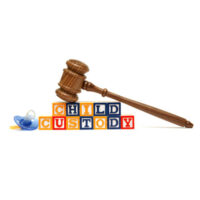Understanding Child Custody Laws In Maryland

Custody is often one of the most contentious issues during a divorce. If you are a parent who is concerned about who will gain custody of your children, then this article will touch on some of the main points concerning child custody in the State of Maryland. In this article, the Maryland divorce lawyers at Schlaich & Thompson, Chartered will discuss how child custody works in Maryland and answer some commonly-asked questions concerning the legalities of child custody.
What does physical custody mean in Maryland?
In Maryland, there are two types of custody: Physical custody and legal custody. Physical custody refers to the right and obligation to provide a home for your child. It includes making day-to-day decisions required of a parent while the child is physically with you. In Maryland, physical custody can be primarily with one parent if the children live with that parent most of the time, or it could be shared between the two parents.
What does legal custody mean in Maryland?
A parent with legal custody of a child has the right and obligation to make specific decisions on behalf of that child. This includes decisions concerning education, religious upbringing, discipline, health care, and other matters relating to the long-term care of the child.
Legal custody has nothing to do with where your child lives. You can have legal custody of a child who primarily resides with the other parent. There are three types of legal custody in Maryland. Those include:
- Sole custody
- Joint custody
- Joint custody with a tiebreaker
If one parent has sole legal custody of a child, that means that they are the only parent with the power to make the aforementioned decisions regarding the child’s upbringing. The other parent may still have visitation and access rights, but ultimately, the decision-making power over the child resides with one parent if that parent is awarded sole legal custody.
Joint legal custody means that both parents would work together to make decisions regarding the child’s education, religious upbringing, and health care. Together, the parents would have decision-making power over the child.
Joint legal custody with a tiebreaker is similar to joint legal custody but one parent has tiebreaking authority. That means that if the parents disagree, then the parent with the tiebreaker ultimately makes the final decision on the issue.
How do the Maryland courts decide custody?
The Maryland courts use a “best interests of the child” standard when deciding which parent will receive sole custody, whether joint custody is preferred, or whether one parent should be awarded a tiebreaker. In a litigated divorce, a judge will make a custody determination after hearing testimony from both parents and sometimes child-rearing experts.
Talk to a Maryland Divorce Lawyer Today
Schlaich & Thompson, Chartered represent the interests of Maryland parents during custody hearings. Call our Bel Air family lawyers today to schedule an appointment, and we can begin discussing the key pieces of evidence you will need to provide to prove your case.
